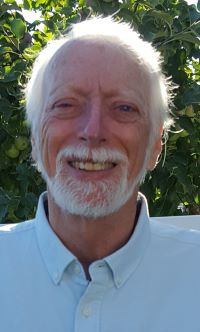
Anthony Thomson
After a long career teaching at Acadia University and writing sociology, social thought, and criminology, Tony has pivoted to fiction. His debut novel, About Face: A Mystery was released on September 1st by Moose House Publications in Annapolis Royal.
Tony was born in Halifax’s Hydrostone district and raised on Lawrencetown Beach. He graduated from Graham Creighton High School in Cherry Brook NS and Dalhousie University, Halifax, and has a PhD in social and political science from the University of Cambridge. He is Professor Emeritus at Acadia.
Among other projects, he has researched small-town and rural policing in the Annapolis Valley.
PUBLICATIONS
About Face: A Mystery (Annapolis Royal, NS: Moose House Publications, 2022).
The Making of Social Theory: Order, Reason, and Desire (Don Mills, ON: Oxford University Press, 2006; 2010)
Modern Social Thought: An Introduction (Don Mills, ON: Oxford University Press, 2015)

